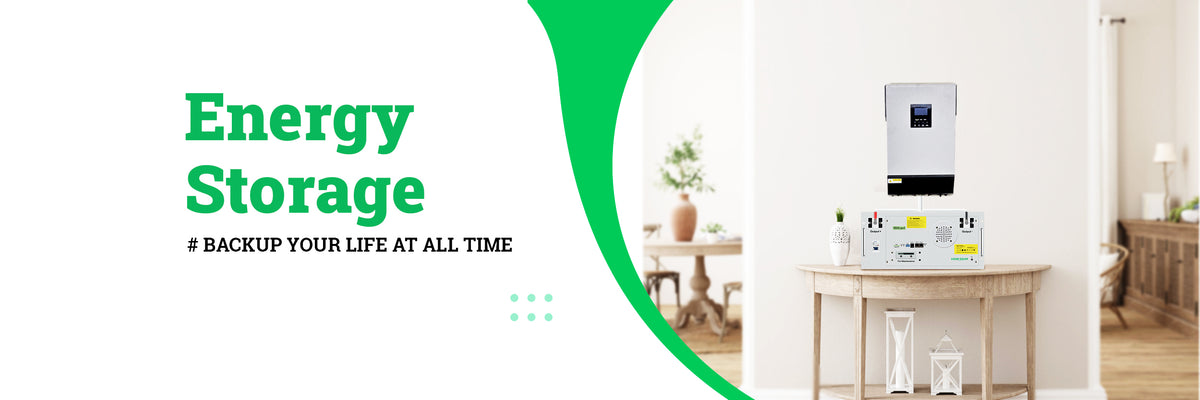Nowadays, where a constant power source is necessary for our daily lives, a reliable home inverter battery has become essential. A high-quality inverter battery can significantly impact several applications, such as ensuring the continuous operation of critical equipment or maintaining light illumination during an unexpected power outage. However, selecting the right one can be overwhelming, given the abundance of available options. We’ll cover all you need to know about residential inverter batteries in this in-depth guide, including types, advantages, home inverter battery prices, and support advice to help you make an informed decision.
Understanding Home Inverter Batteries:
Before going into the details, let’s take a moment to understand what a home inverter battery is and how it operates. Rechargeable energy capacity devices, such as home inverter batteries, store energy while available and release it during power outages. It functions in combination with an inverter, which converts battery-powered DC (coordinate current) control into AC (rotating current) control, enabling you to operate household appliances and devices.
Price Range of Home Inverter Batteries:
The home inverter batteries price varies greatly according to a number of factors, including type, capacity, brand, and characteristics. Generally speaking, an average home inverter battery might cost anywhere from INR 14000 to INR 60000 or more. Factors influencing the price include:
Capacity: The battery’s ampere-hour (Ah) capacity lets you know how much power it can hold. Generally speaking, higher capacity batteries are more expensive.
Type: There are several battery kinds for home inverters, such as lead-acid, lithium-ion, and tubular batteries. Because of their superior technology and longer lifespan, lithium-ion batteries are more expensive than lead-acid batteries, which are usually the least expensive.
Brand: Batteries from well-known companies with a track record of dependability and quality may cost more than those from lesser-known companies.
Features: More expensive batteries may have more sophisticated features including extended cycle life, quicker charging, and intelligent battery management systems.
To make a cost-effective purchase, it’s important to balance the initial cost of a home inverter battery against its durability and long-term benefits.
Types of Home Inverter Batteries:
There are various varieties of home inverter batteries, and each has pros and cons of its own. The most typical kinds consist of:
Lead-Acid Batteries: The most common and conventional kind of inverter battery is the lead-acid battery. They are appropriate for short-term backup power supply, readily available, and reasonably priced. On the other hand, they need routine upkeep, such as adding more distilled water and making sure there is enough ventilation.
Tubular Batteries: An enhanced variant of lead-acid batteries, tubular batteries have higher efficiency and a longer lifespan. They are appropriate for frequent deep discharge cycles due to their longer cycle life. In the long run, they are more durable and require less maintenance even though they are more expensive initially.
Lithium-Ion Batteries: The newest advancement in inverter battery technology are lithium-ion batteries. Compared to lead-acid batteries, they are smaller, lighter, and have a higher energy density as well as quicker charging periods. Even though they cost more up front, they are ultimately a more affordable option because they need less upkeep and have a longer lifespan.
Solar Inverter Battery: A solar battery has longer charging cycles than an inverter battery.
Benefits of Home Inverter Batteries:
Purchasing a high-quality home inverter battery has various advantages, such as:
Uninterrupted Power Supply: Inverter batteries offer backup power in the event of a mains power outage, guaranteeing the continuous operation of vital appliances and gadgets.
Convenience: You may avoid depending on external power sources during shortages by using a home inverter battery, which offers convenience and peace of mind, particularly in emergency situations.
Versatility: Inverter batteries are adaptable and appropriate for a variety of home applications because they can power a broad range of appliances and gadgets, such as lights, fans, TVs, refrigerators, computers, and more.
Cost Savings: Inverter batteries can assist cut fuel expenses and lessen their environmental effect by decreasing the need for diesel generators or other backup power sources.
Long-Term Investment: Purchasing a high-quality inverter battery can pay you in the long run by saving you money on regular replacements and offering dependable backup power for many years to come.
Maintenance Tips for Home Inverter Batteries:
Use these maintenance suggestions to make sure your home inverter battery operates at its best and lasts a long time:
Regular Inspection: Look for indications of corrosion, damage, or loose connections frequently in the battery terminals, cables, and connections. To ensure optimal electrical contact, clean and tighten terminals as necessary.
Water Level Maintenance: To maintain the plates submerged when using a lead-acid or tubular battery, check the electrolyte levels frequently and top off with distilled water as needed.
Appropriate Ventilation: To avoid overheating and guarantee sufficient airflow surrounding the battery, install the battery in a well-ventilated area.
Charging Procedure: Charge the battery by the manufacturer’s instructions, paying particular attention to the suggested charging voltage and current levels. To extend the battery’s life, avoid deep draining or overcharging it.
Temperature Control: Keep the battery out of extremely hot or cold environments since these can shorten its life and performance.
The Bottom Line
To sum up, to ensure maximum performance and lifespan, it is essential to take into account various criteria when selecting a home inverter battery, including price, type, capacity, and features. You may choose a dependable and reasonable home inverter battery price that satisfies your backup power requirements by being aware of your power requirements, investigating your options, and adhering to recommended maintenance procedures. Purchasing a high-quality home inverter battery is a wise move that offers convenience, adaptability, and long-term advantages, whether to power your home during a power failure or to give you peace of mind during emergencies.

